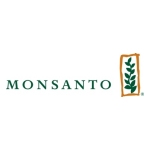Broad Agriculture Coalition Takes Action against California’s Flawed Prop 65 Listing of Herbicide Proven to Be Safe
Unjustified Listing Ignores Science; Would Raise Food Prices & Harm
Farm Economies
ST. LOUIS–(BUSINESS WIRE)–Monsanto is joining a broad coalition of agriculture groups from across
the country to challenge the constitutionality of California’s
unjustified listing of the herbicide glyphosate as a substance “known to
the state of California to cause cancer” under Proposition 65 (Prop 65).
This case was filed today in the U.S. District Court for the Eastern
District of California.
Because of California’s unjustified listing of glyphosate in July 2017,
manufacturers of products containing glyphosate, or products with even
trace residues of glyphosate, sold in California could be required to
affix a false and misleading warning label to their products starting in
2018. This labeling requirement would not only impact Monsanto and its
Roundup-branded products, but also other glyphosate-based herbicides
produced by other companies, the crops grown by U.S. farmers who use the
herbicide, and food products derived from those crops. The consequences
of this labeling requirement could be significant, including higher
production and compliance costs that translate into higher prices for
consumers at the grocery store.
“Monsanto is pleased to stand today with leading farmer
organizations from across the nation to challenge the constitutionality
of California’s unjustified and harmful Proposition 65 listing of
glyphosate,” said Scott Partridge, Monsanto’s vice president of global
strategy. “Glyphosate is a safe, environmentally sustainable and
cost-effective tool for farmers. This labeling requirement would do
nothing more than compel false warnings about a safe product and
unnecessarily increase food prices for consumers.”
Leading the farmers’ coalition are the National Association of Wheat
Growers, the National Corn Growers Association, Associated Industries of
Missouri, Iowa Soybean Association, Agribusiness Association of Iowa,
Missouri Chamber of Commerce and Industry, Missouri Farm Bureau, North
Dakota Grain Growers Association, South Dakota Agri-Business Association
and the United States Durum Growers Association and Western Plant Health
Association.
In July 2017, California added glyphosate to the Prop 65 list, stating
that the substance is “known to the state of California to cause
cancer.” In taking this unjustified action, California ignored its own
regulatory agency’s scientific conclusions, as well as safety
assessments conducted by the U.S. Environmental Protection Agency (EPA),
European regulators, and every other regulatory body in the world – all
of which have concluded that glyphosate is safe for use and not
carcinogenic. This was reinforced just last week when the largest
epidemiological study ever conducted on glyphosate and farmers published
in the Journal
of the National Cancer Institute, concluding there is no link
between glyphosate and any form of cancer.
California’s unjustified listing was based solely on a highly
controversial and deeply flawed 2015 opinion by the International Agency
for Research on Cancer (IARC). Recent investigations have shown that
IARC members concealed and manipulated data that would have undermined
IARC’s opinion. IARC’s flawed opinion and non-transparent process have
come under investigation by the U.S. Congress.
Listing glyphosate under Prop 65 violates the First Amendment, which
protects individuals and businesses from compelled false speech. Under
the unjustified Prop 65 listing, glyphosate manufacturers and
distributors, agricultural producers and food companies could be
compelled to label their products with a warning known to them and to
the scientific community to be false. Compelling such warnings that are
not “purely factual and uncontroversial” cannot be justified under First
Amendment case law.
About Monsanto Company
Monsanto is committed to bringing a broad range of solutions to help
nourish our growing world. We produce seeds for fruits, vegetables and
key crops – such as corn, soybeans, and cotton – that help farmers have
better harvests while using water and other important resources more
efficiently. We work to find sustainable solutions for soil health, help
farmers use data to improve farming practices and conserve natural
resources, and provide crop protection products to minimize damage from
pests and disease. Through programs and partnerships, we collaborate
with farmers, researchers, nonprofit organizations, universities and
others to help tackle some of the world’s biggest challenges. To learn
more about Monsanto, our commitments and our more than 20,000 dedicated
employees, please visit monsanto.com.
Follow our business on Twitter® at twitter.com/.
Contacts
Monsanto
Sam Murphey, 314-694-4593
or
Charla Lord,
314-694-2993









